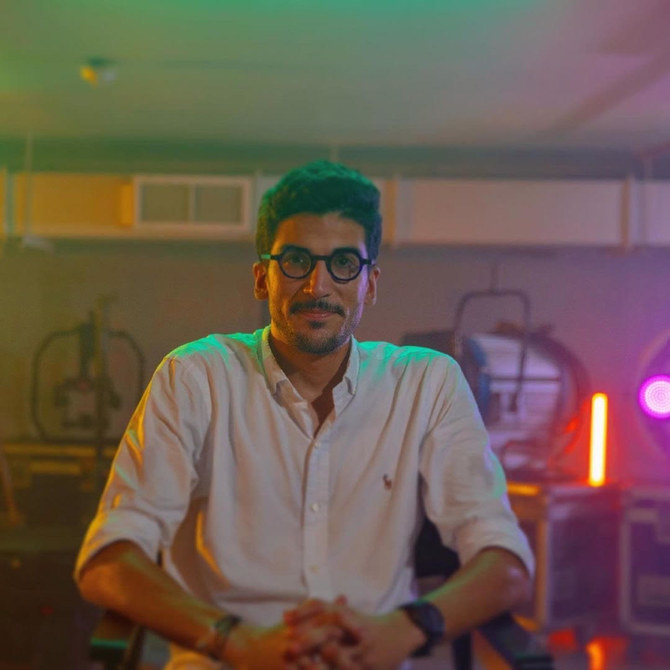Skateboarding is not one of Saudi Arabia’s most popular pastimes. At least, not yet.
But it could be only a matter of time before it takes off if the efforts of two Saudi skaters receive the attention they deserve.
Abdullah Fageeh and Ali bin Mahfouz, now 27 and 24, became friends when they met on Jeddah’s Corniche while skateboarding, and now their life’s mission is to spread the word about it as a sport and lifestyle across the Kingdom.
The two best friends decided the best way to do that was by launching Siteen Street, a skateboarding shop that provides affordable equipment across Saudi Arabia.
“I was unemployed for quite some time and Ali was supporting me, and we would skateboard together,” Fageeh told Arab News. “The first thing I did after I got a job is get a loan to invest for future purposes. One of the investments was for this store, because Ali wanted to start a business, so I had the money and we started small.”
The pair received help from different Saudi clothing brands — CRKD Guru and Urbn Lot — which supported them by designing a logo for their brand. They also came up with the creative name of Siteen Street, which represents a street they both like in Jeddah.
A few months before the COVID-19 pandemic hit Saudi Arabia, Fageeh and bin Mahfouz launched their store. They spent the next few months of lockdown building the base of their business with the help of their third partner, Sultan Majaly.
The pandemic did not stop them from reaching their peers, as they continued delivering to their customers during the quarantine period. “Ali was driving his own car to deliver skates to people,” Fageeh said. “He has so much love for the sport to the point where he sacrifices his time, because the skate scene in Saudi Arabia is not really developed and it’s underrated, there’s a stigma that people think it’s for children.”
Fageeh inherited the love of skateboarding from his father, who had taken it up when he lived in Oklahoma. It wasn’t long before the son was following in his father’s footsteps.
“He was interested in it and he wanted me to skate, so I skated for a year or two and then I quit during middle and high school,” Fageeh explained. “The first board I got from the United States was in 2014 when I got back into the sport as a hobby, and my love and passion for it returned.”
While studying computer science in Alabama, Fageeh witnessed a thriving skating scene around him. After coming back to Saudi Arabia in 2014, he began to notice that love for the sport was growing among locals, compared to only expatriates at first.
But to become a professional skater, or even just a regular one, you need dedicated locations to develop your skills, and according to Fageeh there are only one or two skate parks across the Kingdom. “It’s really frustrating,” he said. “I hope they will build more.”
Another obstacle facing skaters in Saudi Arabia, at least until Siteen Street opened, was a lack of skate shops.
“Whenever our board breaks, we get really disappointed and frustrated because we want to keep skating but parts need to be changed,” he said.
Fixing broken parts of a skateboard is not as straightforward in Saudi Arabia as it is in countries such as the US. But it is a necessity for those who wish to turn the hobby into a professional career. For Fageeh, retaining a consistent level of skating requires regular, single-minded training and, with that, a reliable board throughout practice.
“When boards start to wear off, you have to change them,” he said. “Only professionals have sponsorships where they get a free supply of decks so they can change them any time.”
For young skaters, access to sponsorship is tricky. And, as such, Siteen Street aims to make parts more accessible to the Saudi community, selling products at affordable prices because, Fageeh says, “this is the culture of skating.”
However, skating has some way to go before it is fully embraced by Saudi society. Many young skaters still get fined or arrested for skating in certain spots and for Fageeh, such restrictions are disappointing.
“It’s frustrating because they don’t know about the sport,” he said. “It’s new to them and anything new to humanity is rejected. We want to spread the sport out of our love for it, we’re not just seeking money, we want people to know what skateboarding is.”
The pair hope to change the skating scene in Saudi Arabia and transform attitudes across the Kingdom, one step at a time. Fageeh believes such a change will take time but hopes they will manage to build a generation of Saudi skaters through their shop.
“A lot of people don’t know how to order online from the US so we have this opportunity to give this to people around us in Saudi Arabia and spread the culture among the new generation so they fall in love with the sport,” he said. “Skating is not a crime and we hope to build an army of skaters.”
And with skateboarding making its debut at the Tokyo Olympics later this month, and having received provisional approval by the International Olympic Committee (IOC) to be included in the 2024 Olympic Games in Paris, the young Saudis are even more ambitious with their targets of representing their country abroad.
Fageeh believes Siteen Street’s mission, coupled with the love for the sport, is what will help push young Saudi skaters toward the Olympics and other competitions, while becoming the main distributor of skate parts in the Middle East.
For him, skateboarding is more than just a sport, it is a therapeutic and healthy lifestyle.
“It teaches you how to deal with life,” he said. “The mentality that comes with boarding is the best you could ever have because you can skate and fall so many times until you achieve a trick, and this is what life is about, we fall but we get up again.”
Fageeh also spoke of documentaries he watched of drug addicts who used skateboarding to heal themselves. It is a life-changing activity.
“If there is any sport that I would recommend for all people to do it’s this because it’s really healthy for the brain, and it helps to cope with anxiety, depression and all mental disorders,” he said. “I hope Saudis will be able to take part in the Olympics in the future and I know it will happen. Skating is a beautiful sport and if you don’t skate, you’re missing out. It’s about ‘dream it, believe it, achieve it’.”





























